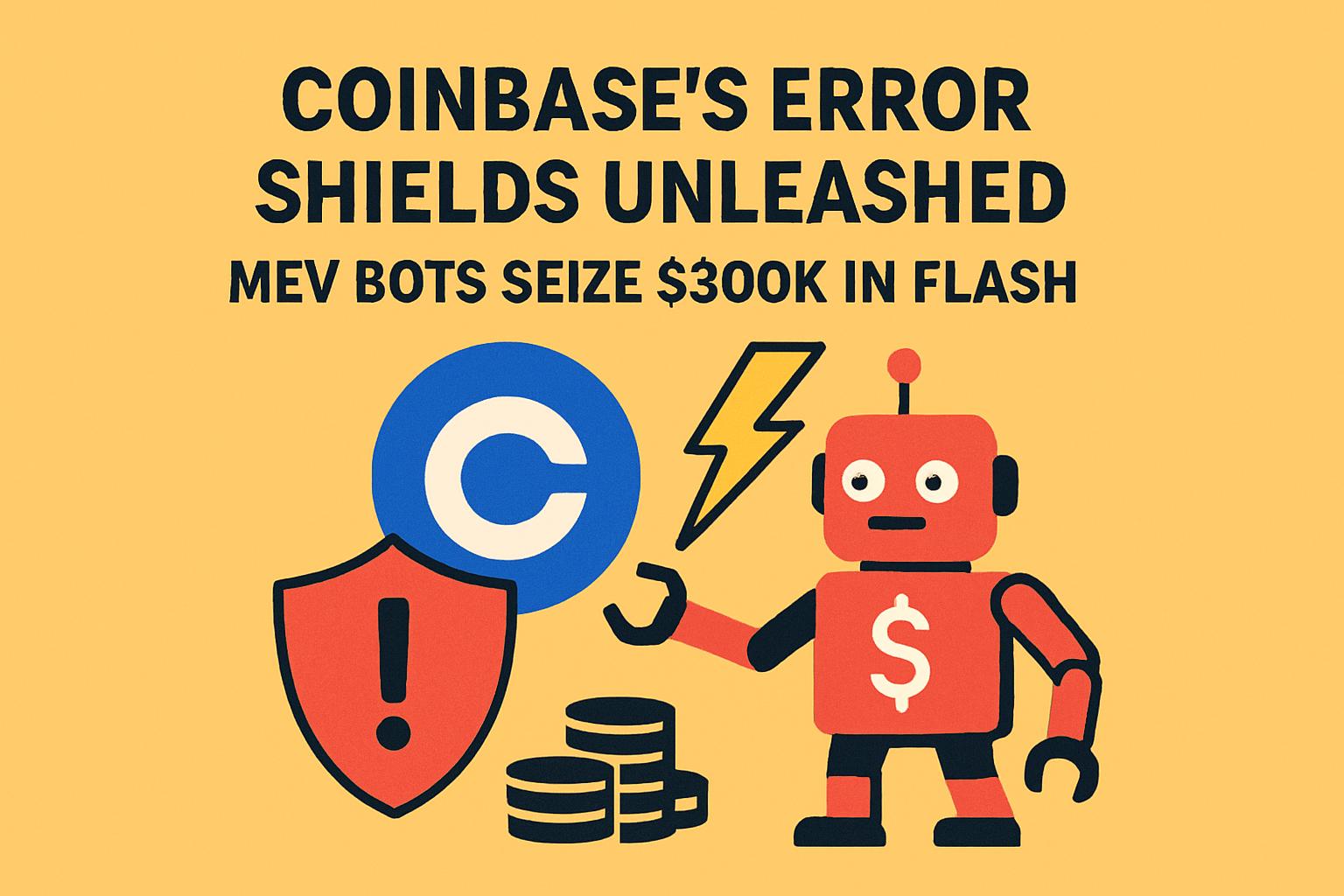One of the titans of the cryptocurrency exchange world, Coinbase, has recently found itself in a precarious situation. A misconfiguration of its corporate wallet led to the unintended authorization of tokens to the 0x Project’s decentralized trading protocol – a permissionless smart contract known as the ‘swapper.’ This error paved the way for opportunistic MEV (Miner Extractable Value) bots to swoop in, leading to a loss of approximately $300,000.
The Misstep: Authorization to Swapper Contract
The saga began with the interaction between Coinbase and the 0x Project, which provides a smart contract for token swaps. Though designed for straightforward token exchanges, the swapper contract was improperly set up to accept ongoing token approvals, inadvertently granting it control over significant assets – a move fraught with security risks.
Deeberiroz, a security researcher from Venn Network, highlighted that Coinbase mistakenly authorized multiple tokens during a recent transaction. Tokens such as Amp, MyOneProtocol, DEXTools, and Swell Network were caught in the crossfire. This broad authorization essentially handed over keys to the kingdom, turning Coinbase’s wallet into easy prey for MEV bots.
MEV Bots: Predators in Waiting
These MEV bots, notoriously vigilant and constantly monitoring transactions in the mempool, have perfected the art of exploitation. Upon detecting the vulnerable state of Coinbase’s wallet, they quickly leveraged the swapper contract to transfer the authorized tokens to their addresses in a flash, leaving Coinbase no time to react.
Deeberiroz noted how these bots simply await human error. The moment such an error transpires, they waste no time in executing their moves – as evidenced by this recent incident where Coinbase’s inadvertent mistake led to a substantial gain for these automated hunters.
Damage Control: Ensuring Client Security
In the aftermath, Coinbase’s Chief Information Security Officer, Philip Martin, responded on social media, explaining that this was an isolated incident confined to a corporate wallet used solely for fee accumulation. Crucially, no customer funds were at risk.
Coinbase has since taken swift corrective actions, revoking all erroneous authorizations and transferring funds to a new corporate wallet to avert future occurrences.
A Cautionary Tale: Regularly Revoke Unnecessary Authorizations
This incident serves as a stark reminder of the vulnerabilities inherent in crypto asset management, particularly regarding token approvals. Mistaken authorizations can allow parties to assume full control over user assets within their scope. Given the transparent and irreversible nature of blockchain transactions, recovering funds is often impossible once lost.
For users navigating the decentralized financial landscape, this event underscores the importance of routinely reviewing and revoking unnecessary authorizations. Services such as the Revoke website offer practical tools to help users mitigate potential risks by identifying and removing dormant privileges.

![[News] Bitcoin at a Turning Point? 10x Research Signals a Bullish Macro Shift Ahead](https://cryptoexplores.com/wp-content/uploads/2025/06/new20250616.jpg)
![[News] Binance Lists $HOME, the Gas-Free, Bridge-Free All-in-One DeFi App](https://cryptoexplores.com/wp-content/uploads/2025/06/news20250617.jpg)